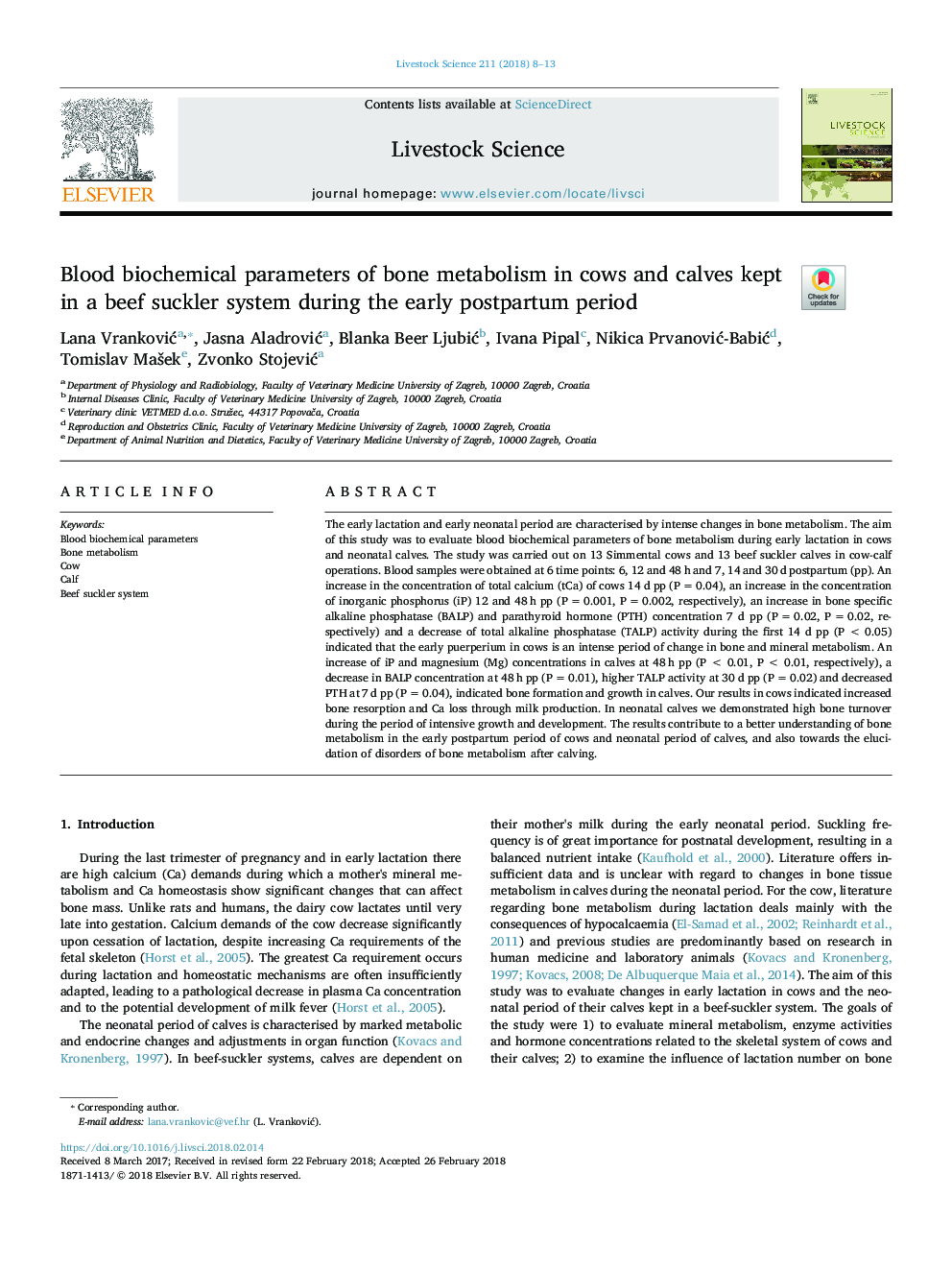| Article ID | Journal | Published Year | Pages | File Type |
|---|---|---|---|---|
| 8501984 | Livestock Science | 2018 | 6 Pages |
Abstract
The early lactation and early neonatal period are characterised by intense changes in bone metabolism. The aim of this study was to evaluate blood biochemical parameters of bone metabolism during early lactation in cows and neonatal calves. The study was carried out on 13 Simmental cows and 13 beef suckler calves in cow-calf operations. Blood samples were obtained at 6 time points: 6, 12 and 48â¯h and 7, 14 and 30â¯d postpartum (pp). An increase in the concentration of total calcium (tCa) of cows 14 d pp (Pâ¯=â¯0.04), an increase in the concentration of inorganic phosphorus (iP) 12 and 48â¯h pp (Pâ¯=â¯0.001, Pâ¯=â¯0.002, respectively), an increase in bone specific alkaline phosphatase (BALP) and parathyroid hormone (PTH) concentration 7 d pp (Pâ¯=â¯0.02, Pâ¯=â¯0.02, respectively) and a decrease of total alkaline phosphatase (TALP) activity during the first 14 d pp (Pâ¯<â¯0.05) indicated that the early puerperium in cows is an intense period of change in bone and mineral metabolism. An increase of iP and magnesium (Mg) concentrations in calves at 48â¯h pp (Pâ¯<â¯0.01, Pâ¯<â¯0.01, respectively), a decrease in BALP concentration at 48â¯h pp (Pâ¯=â¯0.01), higher TALP activity at 30 d pp (Pâ¯=â¯0.02) and decreased PTH at 7â¯d pp (Pâ¯=â¯0.04), indicated bone formation and growth in calves. Our results in cows indicated increased bone resorption and Ca loss through milk production. In neonatal calves we demonstrated high bone turnover during the period of intensive growth and development. The results contribute to a better understanding of bone metabolism in the early postpartum period of cows and neonatal period of calves, and also towards the elucidation of disorders of bone metabolism after calving.
Related Topics
Life Sciences
Agricultural and Biological Sciences
Animal Science and Zoology
Authors
Lana VrankoviÄ, Jasna AladroviÄ, Blanka Beer LjubiÄ, Ivana Pipal, Nikica PrvanoviÄ-BabiÄ, Tomislav MaÅ¡ek, Zvonko StojeviÄ,
